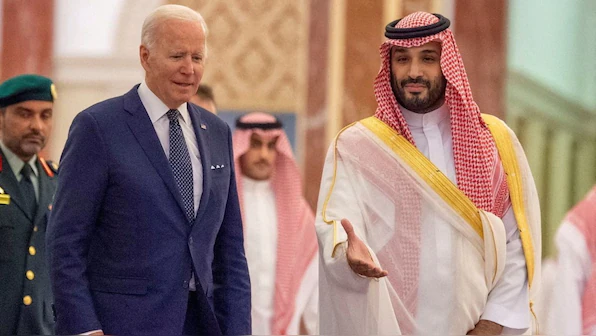The Biden administration has decided to lift the ban on U.S. sales of offensive weapons to Saudi Arabia. This marks a reversal of a policy put in place three years ago. As pressure from the kingdom to end its involvement in the Yemen war. The State Department confirmed on Friday that the suspension on certain air-to-ground munitions transfers to Saudi Arabia would be lifted.
Review Process and Congressional Involvement
The decision means that officials will consider new transfers of offensive weapons on a case-by-case basis, following the Conventional Arms Transfer Policy. Congress must evaluate all major international arms deals before they finalise them. Although there has been criticism from both Democratic and Republican lawmakers regarding the provision of these weapons, opposition has softened in recent months.
Changing Dynamics in the Middle East
The shift in policy comes amid increased turmoil in the Middle East, particularly following the deadly Hamas attack on Israel on October 7. The conflict in Yemen has also evolved since the Saudi-led coalition entered into a U.N.-led truce in March 2022. There have been no Saudi airstrikes in Yemen since then, and cross-border fire into Saudi Arabia has significantly decreased.
Saudi Arabia’s Actions and Improvements
A senior Biden administration official noted that Saudi Arabia has met its commitments, which contributed to the decision to lift the ban. The Saudi Ministry of Defense has made substantial improvements in mitigating civilian harm, partly due to U.S. training and advice. These positive steps were a key factor in the administration’s decision.
Warming Relations Between U.S. and Saudi Arabia
Since the Biden administration took a more assertive stand against the sale of arms, ties between the United States and Saudi Arabia have improved. The U.S. and Saudi Arabia have been working together more closely, especially in response to the recent violence in the region. The U.S. is also negotiating a defense pact and an agreement for civil nuclear cooperation with Saudi Arabia. This broader deal envisions Saudi Arabia normalising ties with Israel, although this goal has not yet been achieved.
Regional Tensions and Implications
The decision to lift the weapons sales ban comes at a time of increased tension in the region. Iran and Hezbollah from Lebanon have promised to fight back against Israel after recent conflicts. The Houthis have attacked ships that they claim are connected to Israel.
Humanitarian Concerns
The Yemen war, which began in 2015, has been one of several proxy battles between Iran and Saudi Arabia. The conflict has resulted in hundreds of thousands of deaths and left a significant portion of Yemen’s population dependent on humanitarian aid. The U.S. decision to lift the weapons ban reflects a complex balancing act between regional security interests and humanitarian concerns.
Way Forward
The Biden administration’s decision to lift the ban on weapons sales to Saudi Arabia reflects a shift in policy influenced by evolving regional dynamics and improvements in Saudi Arabia’s conduct. While the move has received mixed reactions, it underscores the ongoing complexities in U.S. foreign policy and its impact on global security and humanitarian issues.

